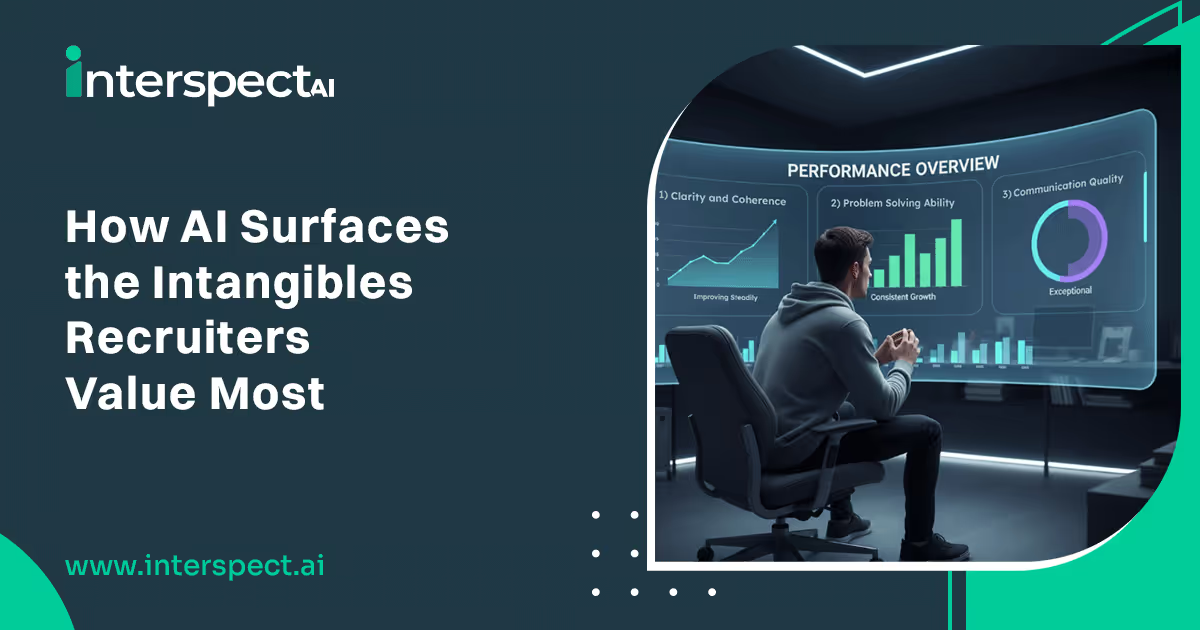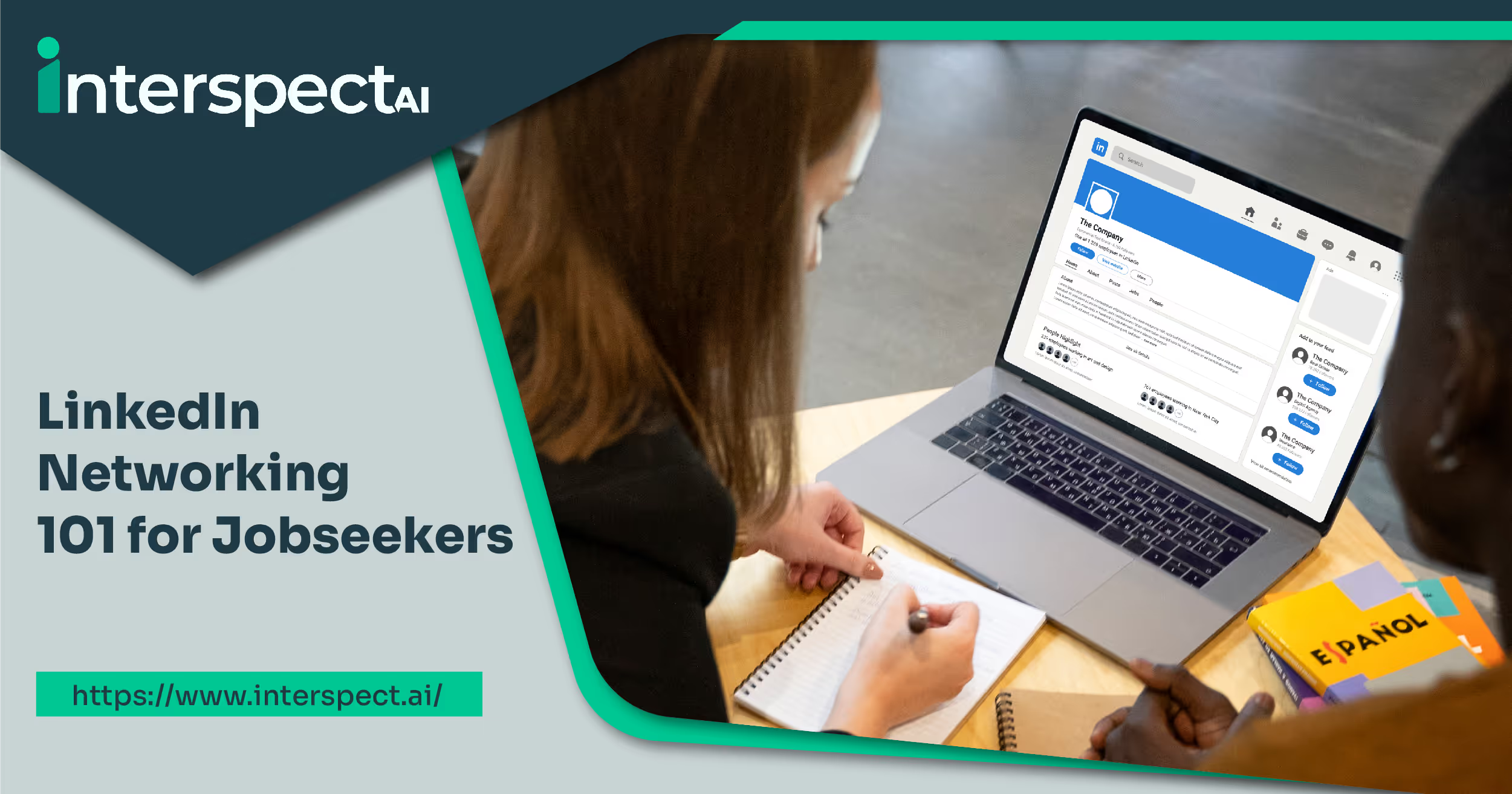
In today's algorithmic job market, technical competence is just the entry fee. Landing the job depends entirely on the intangibles: the unspoken qualities like genuine student confidence, clarity under pressure, and adaptability. These employability insights—the "human" factors are critical, yet they are the hardest traits to teach, measure, and refine using traditional methods.
When two candidates have equally strong résumés, the one who communicates their value with poise and conviction wins. This is why AI soft skills assessment is fundamentally reshaping career preparation. It replaces subjective human observation with objective data, giving students a measurable path toward mastering traits previously considered too elusive to quantify.
I. The Intangibles Gap: Why Soft Skills Elude Metrics
Soft skills like Communication, Adaptability, and Professionalism (core National Association of Colleges and Employers (NACE) ) remain difficult to assess for three main reasons:
- They are Behavioral: Unlike technical knowledge, soft skills are behavioral capacities, measured by observing how a candidate acts and speaks.
- Lack of Standardization: Traditional methods rely heavily on individual interviewer impressions, leading to low consistency and standardization.
- Human Bias: Assessment can be clouded by unconscious bias, potentially misjudging a candidate's competence based on non-relevant factors.
To achieve genuine mastery, students need objective interview performance data that isolates and quantifies these behavioral traits.
II. AI Soft Skills Assessment: The Multimodal Lens
AI achieves this granular analysis through multimodal technology, integrating specialized algorithms to analyze multiple data streams simultaneously (NLP - Natural Language Processing, Machine Learning, and Computer Vision).
SpectraSeek, a pioneer in digital career coaching, is built on proprietary agentic AI. Designed as an LLM-powered decision engine, it delivers verifiable, high-precision assessments. The platform’s ability to reason, analyze, and generate structured feedback enables it to surface critical performance traits directly from a candidate’s responses.
This depth of communication skills analytics provides objective feedback that human staff often cannot standardize across high volumes.
III. Measurable Growth Data and Predictive Validity
For students, the greatest value of AI soft skills assessment is the instant, measurable feedback loop. It transforms vague advice ("be more persuasive") into specific, actionable steps ("reduce your filler word rate").
Students using these AI simulation tools note a demonstrable increase in student confidence and improved articulation of complex concepts. The data shows that focusing on these quantified behaviors delivers tangible career advantages, proving the predictive validity of the metrics:
- Higher Offer Rates: Applicants who engage with AI assessment systems often experience better interview outcomes, as structured AI feedback helps them present clearer, more relevant responses.
- Long-Term Fit: These candidates also tend to show stronger early-stage job stability, suggesting that AI-guided preparation supports more accurate role alignment.
These employability insights establish AI assessment as the new standard for validating career readiness.
IV. Strategic Use for Career Services
For university career services, an AI soft skills assessment is invaluable for moving beyond basic support to a data-driven strategy.
- Curriculum Refinement: Aggregate performance data identifies cohort-wide soft-skill deficiencies (e.g., poor clarity or low confidence scores). This allows institutions to modify curriculum based directly on objective gaps, ensuring training prioritizes skills AI validates as critical for job success.
- Targeted Coaching: By automating the initial assessment, AI frees up human advisors to focus on high-touch coaching: addressing emotional anxiety, complex ethical discussions, and nuanced negotiation strategy.
- Equity and Access: The AI soft skills assessment provides a high-quality baseline of support 24/7. This democratizes access to sophisticated practice, neutralizing the resource scarcity that often causes systemic disparities in career outcomes.
The Future of Readiness is Data-Driven
The traits recruiters value most—confidence, clarity, and adaptability—are no longer intangible guesswork. AI soft skills assessment has provided the measurable framework necessary to quantify and master these core behaviors. By leveraging platforms like SpectraSeek, students gain personalized, objective interview performance data to refine their soft skills, while institutions gain the metrics needed to prove the real-world value of their career programs.
Ready to Quantify Your Soft Skills?
The real proof of career readiness lies in objective performance metrics. SpectraSeek is the platform that delivers this necessary data, quantifying the behavioral skills recruiters prioritize. Ready to move beyond guesswork and start measuring true success?
Whether you're a job seeker aiming for mastery or a university striving to prove graduate success, discover how our agentic AI can transform your metrics.
Frequently Asked Questions
What is the primary focus of AI soft skills assessment?
AI soft skills assessment in SpectraSeek focuses on verbal, behavioral, and response-based traits—such as clarity of explanation, communication quality, logical structure, and relevance of examples. These indicators help determine a candidate’s professionalism, preparedness, and role alignment, offering depth that traditional assessments often miss.
How does SpectraSeek measure confidence and clarity?
SpectraSeek uses advanced linguistic analysis powered by agentic AI to evaluate the clarity, coherence, and structure of a candidate’s responses. By examining factors like answer organization, relevance, filler-word usage, and communication quality, it provides students with objective insights into their verbal performance and overall interview readiness.
Does an AI soft skills assessment help with job placement?
Yes. Candidates assessed using AI are much more likely to receive a job offer and show higher retention rates, confirming that the objective soft-skill data measured by the AI is highly predictive of long-term job success.
How do universities use this performance data?
University career services use aggregated interview performance data to identify cohort-wide skill gaps. This allows them to refine curriculum, moving from generic instruction to targeted training that addresses the specific soft skills lacking in their student body.
Subscribe to The InterspectAI Blog


%201.svg)








